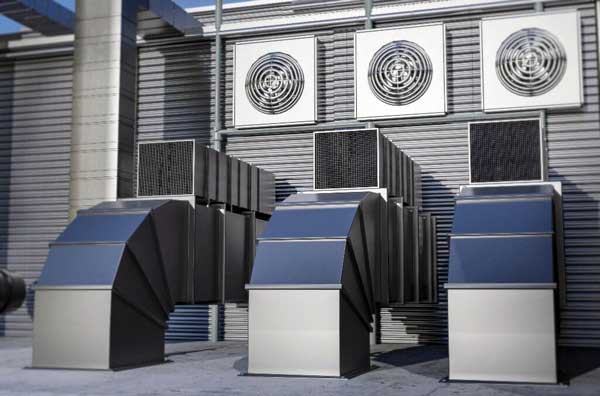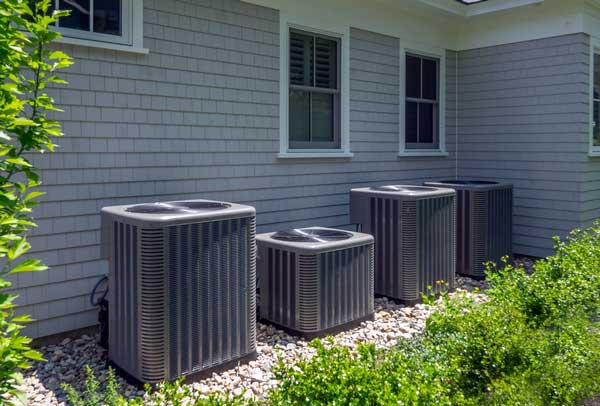What HVAC means?
HVAC stands for heating, ventilation and air conditioning. This system provides heating and cooling in residential and commercial buildings. You'll find HVAC systems everywhere from single-family homes to submarines, where they provide environmental comfort.
Increasingly popular in new construction, these systems use fresh outdoor air to provide high indoor air quality. The V in HVAC, or ventilation, is the process of replacing or exchanging air in a room. This improves indoor air quality and involves removing moisture, smoke, odors, heat, dust, airborne bacteria, carbon dioxide and other gases, regulating temperature and replenishing oxygen.

Image.. www.praairconditioning.co.uk
How an HVAC system works
The three main functions of an HVAC system are interrelated, especially when it comes to providing acceptable indoor air quality and thermal comfort. The heating and air conditioning system is often one of the most complicated and elaborate systems in a home, but when it stops working, it can become a challenge for a technician.
After all, there are nine components in an HVAC system that can cause a malfunction, namely: air return, filter, exhaust, ductwork, electrical elements, outdoor unit, compressor, coils and blower.
Air Return
The air return is the part of the system that marks the starting point of the ventilation cycle. This return draws in air, passes it through a filter and then sends it on to the main system. Be sure to dust the air return regularly, as dirt and dust can easily accumulate on the filters.
Filter
The filter is the second part of the return air system through which air is drawn. Be sure to change the filters regularly to keep the system in top shape.
Exhaust vents
Another part of the system is the exhaust vents where the exhaust gases produced by the heating system are discharged. Check the flue or vent pipe annually and have it adjusted, if necessary.
Ducts
Ducts are where the heated or cooled air flows through. Have the ducts cleaned every 2 to 5 years to keep everything in good condition.
Electrical elements
This part of the system can be a bit trickier, but often this is where problems arise first. If something isn't working properly, check to see if the circuit breaker has tripped or if the batteries in the thermostat are dead.
Outdoor Unit
This is probably the part of the system people think of when someone talks about an HVAC system. Inside the outdoor unit is the fan that provides airflow. Keep the unit free of clutter and vegetation, as it can cause serious problems if plants get sucked into the fan.
Compressor
As part of the outdoor unit, the compressor is responsible for converting refrigerant from gas to liquid and sending it to the coils. If something isn't working quite right, check the compressor. It is often the cause of many system failures.
Coils
The coils, usually another part of the outdoor unit, cool the air flowing through them with a little help from the refrigerant. Check the coils annually. If they freeze, you may need to check the filter and/or refrigerant level.
Blower
The blower draws warm air through the main body of the unit. The more efficiently this air flows through, the more durable the system will be.

Image.. neeeco.com
What is included in an HVAC system?
Since we now know that HVAC stands for heating, ventilation and air conditioning, we know that these are the three main components of the entire system.
The heating element usually refers to a furnace or boiler. It includes a piping system for the fluid that transports the heat or ductwork if you are working with a forced air system.
The ventilation element is natural or forced and if it is forced, it is usually also used for air purification.
As many of us know, the third and final element of an HVAC system is air conditioning, which is the exact opposite of heating. Its main purpose is to remove existing heat from the interior of the home.
What is the difference between HVAC and Air Conditioning?
Air conditioning is actually the last part of what HVAC stands for, but they are often used interchangeably for any type of heating or cooling device in a home. Think of HVAC as the umbrella term and air conditioning as a piece of the puzzle.